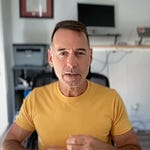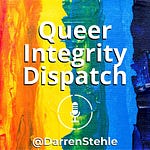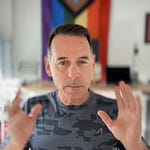Blame vs. Personal Responsibility: A Leadership Test
It’s Friday, September 12, 2025.
I mention the date because so much has happened this week—people are yelling, arguing, and losing their minds. Some are scrambling for explanations, trying to use the moment to lead forward in a way that respects human dignity and embraces responsibility for oneself and for the common good—not tribalism; not us versus them.
The challenge is that many people are deeply emotional right now. I’m talking in part about Charlie Kirk, but what sparked today’s reflection was something I read by John Amaechi on LinkedIn. He used a phrase: “sonic libertarianism.”
He describes this as
“a cultural condition where people feel entitled to speak whenever they wish, in whatever manner they wish, regardless of accuracy or consequence. It’s framed as the purest form of free speech, but in practice it rewards volume over substance. The loudest and most persistent voices dominate, thoughtful contributors are pushed aside, and poor”quality, evidence-free ideas thrive unchecked.”
I’m a firm believer that words themselves aren’t violent.
However, when harmful words are repeated over and over, they can inspire those more inclined toward violence to act. Rhetoric without responsibility makes brutality predictable.
Blame Looks Backward
Amaechi’s post got me thinking about blame versus personal responsibility—especially for us as leaders, and particularly queer leaders.
Blame is backward-facing. It assigns fault for something that’s already happened. It involves judgment, shame, and punishment. It focuses on who caused the problem, who’s “at fault,” and it often leads to defensiveness or avoidance rather than growth or understanding.
People stuck in the past tend to blame others for their circumstances—parents, upbringing, lack of income, trauma. Those realities matter and deserve care, but constant backward-looking keeps you from asking how you can move forward.
Religious fundamentalism and rigid political ideologies also look backward. They cling to ancient texts or imagined “great nations,” searching for someone to blame for today’s complexity. The logic is always the same: identify a small group, declare them the problem, and punish them. When that group is eliminated, move on to the next.
Responsibility Faces Forward
Personal responsibility is forward-facing. It asks: What part of this situation is mine to own, to learn from, to act on?
It’s about taking ownership of your choices, your actions, and your ability to respond—your agency. Even if you didn’t cause a situation, responsibility means acknowledging reality and deciding how you will engage with it.
This isn’t about shame or self-blame. It’s about critical thinking and emotional maturity. It requires slowing down, listening, and forming a thoughtful response when others are firing off sound bites designed to inflame.
Leadership rooted in personal responsibility grows from compassion, humility, and the willingness to walk with people instead of powering over them.
A Queer Perspective
As queer people, many of us have been forced into self-reflection and self-care simply to survive.
That experience can make us more attuned to injustice and more practiced at taking responsibility for our own well-being and the well-being of others. We don’t just want to coexist—we want to exist fully, with dignity and freedom.
For me, personal responsibility is the foundation of ethical leadership. It demands that I ask, If I take this action, how will it affect others—and how will it shape the person I am becoming?
Blame says, “You are at fault.”
Responsibility says, “This is mine to carry, to address, to act on.”
Moving Forward
For all the problems in the world, none of us can take them all on. I have chosen to focus my energy on LGBTQ+ dignity and equality, because I believe queer people deserve the freedom to live and identify as they wish—and because that fight is inseparable from building an open-hearted, evolving society.
Blaming others will not create change.
What does create change is how we think, how we manage our emotions, how we support others, and how we care for ourselves so we can show up with clarity and compassion.
The question is simple but profound:
When the shit hits the fan, will you blame others—or will you take personal responsibility?
As a 2SLGBTQIA+ leader, you know that caring for your well-being is essential to sustaining your impact.
But self-doubt, discord, and overwhelm can quietly erode your clarity and conviction. You don’t have to navigate this alone—the most influential leaders get direct support.
Right now, I’m offering 20 FREE Queer Leadership Strategy Calls to help you feel well so you can lead well. In our session, we’ll sharpen your clarity, direction, and strategy so you can:
Identify and break free from self-censorship patterns.
Prioritize self-care that fuels energy and emotional balance.
Communicate with confidence and elevate others.
Lead with queer integrity for lasting influence and meaningful change.
Don’t leave your cause, your mission, or your leadership to chance.








